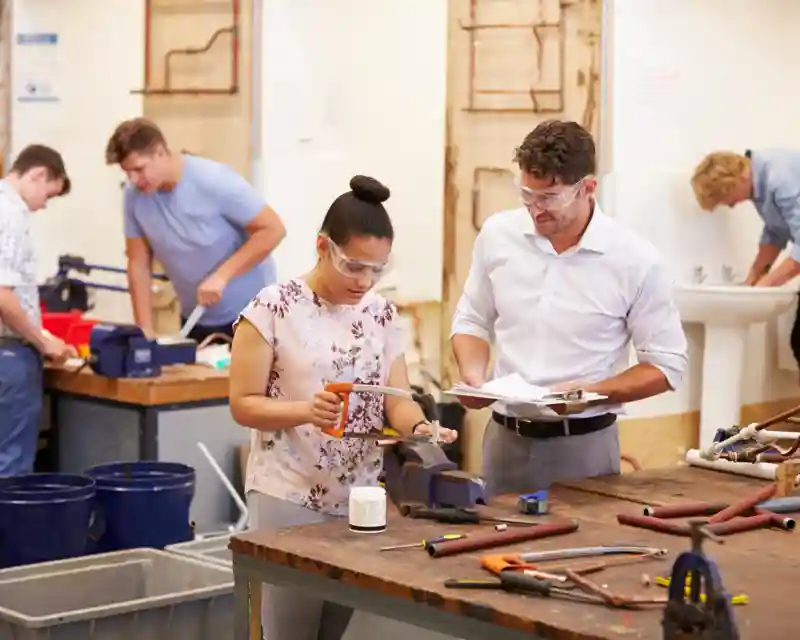Vocational schools in Michigan are excellent options for people looking to acquire a certain skill set or change careers. Numerous colleges in the state provide a diverse range of programs across various industries and professions.
Throughout the programs, students are immersed in challenging coursework designed to prepare them for a variety of in-demand occupations. In recent years, they have become an appealing choice because they offer lower tuition rates and shorter completion times than standard bachelor’s degree programs.
Many of the best vocational schools in Michigan provide a lot of benefits, and below, we’ll look at some of the most widely recognized and what they have to offer.
However, before we get started on the list, we’ll go over some other crucial factors to consider while choosing trade schools in Michigan. These include the average cost of training programs, financial aid options, and career prospects for graduates of vocational schools in Michigan.
Table of Contents
Why Choose Vocational Schools in Michigan?
Every year, vocational schools in Michigan assist thousands of students seeking a career-focused education. Students can start a profession in high school that combines their talents and passions with industry-specific skill training and education. Vocational schools in Michigan can lead to an associate’s degree, diploma, or certificate.
Vocational schools in Michigan include both public and private colleges. The school programs frequently provide training for the state’s booming industries, including manufacturing, healthcare, and construction. According to the National Center for Education Statistics, 74% of graduates from technical and vocational schools find employment in their profession, compared to 53% of graduates with academic credentials.
Vocational school programs combine classroom and practical instruction. For example, students in occupational therapy assistant programs conduct clinical training to gain hands-on experience. The Michigan Talent Investment Agency provides a variety of options to assist students in meeting their educational and career goals.
Average Cost of Vocational Schools in Michigan
Candidates attending vocational schools in Michigan typically spend between $17,000 and $22,000 on their overall educational expenses. Tuition fees are the major contributor to this expense, with vocational students in the state spending between $14,000 and $22,000 each year on tuition.
The cost of books also plays a part, but less considerably, with approximately $500 – $1,000 spent yearly in this regard. Accommodation fees and program-specific equipment are typically the next most significant costs after tuition.
Students in vocational schools in Michigan spend between $500 and $5,000 for program-specific equipment, while annual accommodation costs range between $1,200 and $1,800. The cost of utilities and transportation, although less significant, should also be considered as part of the expense.
Financial Aid for Vocational Schools in Michigan
While the cost of attending vocational schools in Michigan is lower than in some other states and lower than the cost of attending traditional colleges and universities, candidates can save even more.
They might do so by taking advantage of the numerous scholarships and awards offered by various financial aid programs and initiatives. We will look at a few of these below.
- Students from vocational schools in Michigan who graduated from a state high school with at least a 3.71 GPA are eligible to apply for the Daniel Gerber Sr. Medallion scholarship. It offers up to $10,600 over four years and is a merit-based scholarship.
- Clarence A. Buck Iles Scholarship provides varied sums to construction trade students in Saginaw County, and the Saginaw Community Foundation organizes it.
- The Dallas-Plangetis Scholarship provides up to $1,000 to Washtenaw County students with type I diabetes. The Diabetes Scholars oversee it, and students in vocational and trade schools qualify for this scholarship.
- Other important mentions include the Kids’ Chance Michigan award for children of workers killed or injured on the job, and the Tiderington Family Scholarship for Saginaw County residents interested in attending vocational schools in Michigan.
Related: The Best Nursing Schools In Dallas
Career Outlook for Vocational School Graduates
Many in-demand jobs provide job satisfaction and higher-than-average pay without having an expensive or time-consuming degree. Professional trade occupations have a median wage of $56,000 and account for more than 530,000 jobs in Michigan, with over 47,000 openings each year.
According to the Michigan Economic Development Corporation, businesses in the state are continuing to flourish as a result of business-friendly regulations and a coordinated talent initiative aimed at producing a competent workforce. Medical device manufacturing, cybersecurity, healthcare, and composite material manufacturing are all high-demand industries. Michigan is also still at the forefront of global automobile production and leads the nation in information technology job growth.
Physical therapy assistants and industrial machinery mechanics are among the state’s fastest-growing occupations, with expected growth rates of 31% and 28%, respectively. Physical therapy assistants who complete a two-year degree can earn between $30,000 and $63,000 per year.
List of Vocational Schools in Michigan to Apply
With so many vocational schools in Michigan, students may require assistance in determining which school best suits their needs. Learners can use the following ranking to locate programs that match their interests and aspirations.
1. Abcott Institute:

Abcott Institute, founded in 2002, is based in Southfield, Michigan. The facility is a career training institution that focuses on medical and occupational specialties.
The institution is fully accredited and can provide students with thorough knowledge in their chosen job path. Once enrolled, students receive a well-rounded education and various hands-on opportunities that can lead to an entry-level position.
After graduation, students can pursue roles such as:
- Practical nurses.
- Surgical Technicians
- Central Processing Technicians
2. Carnegie Institute:

Carnegie Institute was established in 1947 in Detroit, Michigan, to equip students for careers as certified medical assistants. The hospital accepts a variety of financial help, including loans, grants, and scholarships.
Enrolled students are also able to receive financial aid to help cover their educational expenses. Currently, the institution offers over ten programs, including those in:
- Cardiovascular Technology
- Massage Therapy
- Medical insurance biller
3. Washtenaw Community College:
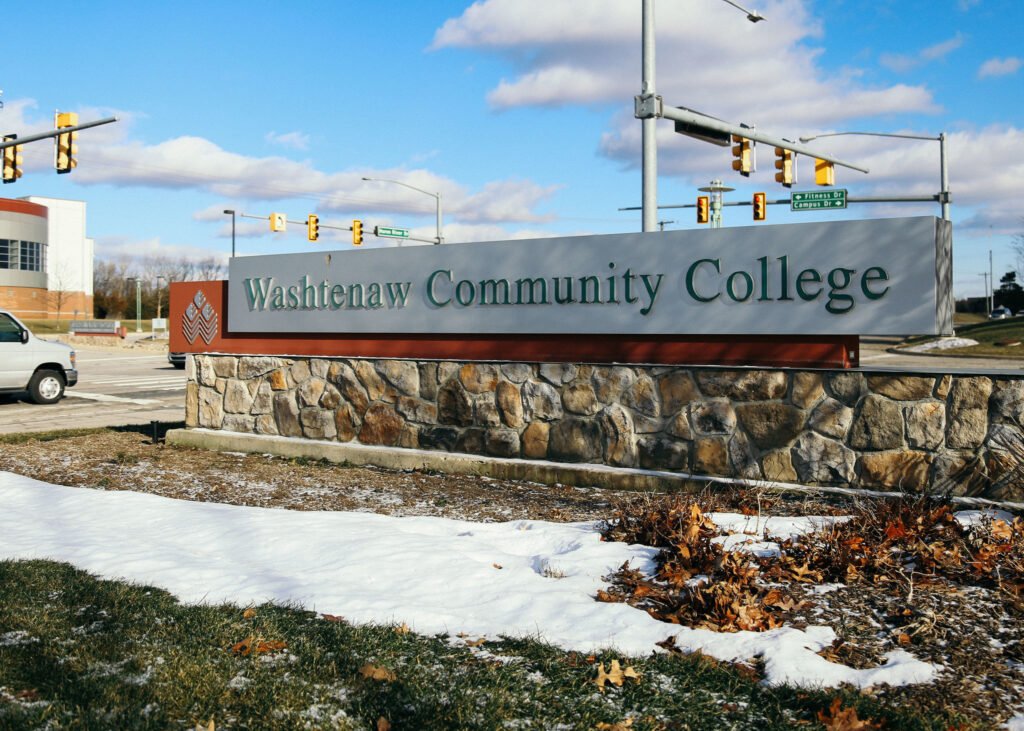
Washtenaw Community College is another excellent option for those interested in learning a trade. The institution has developed to become one of the nation’s top-ranked community colleges, with an average enrollment of over 18,000 students.
The college spans 285 acres and boasts a varied student body that comprises over 1,000 students from over 100 different nations.
At college, students can learn trades in:
- Welding,
- Construction,
- HVAC
- Plumbing
- Iron-working
4. Montcalm Community College:
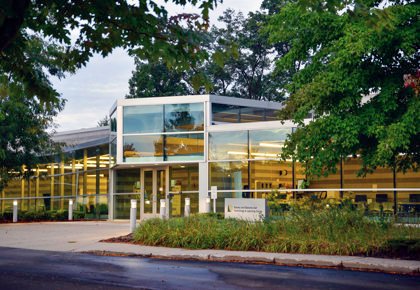
Montcalm Community College is another college that is committed to providing chances for students to gain credits toward degrees, certifications, and career training programs. The institution provides a variety of occupational, transfer, dual enrollment, and early college programs for students of all ages.
MCC was founded in 1965, and its primary goal is to provide an accessible and inexpensive college education. Overall, the college provides over 60 academic programs with an average class size of 15.
Along with its two-year degree programs, the college provides trade programs in:
- HVAC
- Computer technology
- Industrial automation maintenance
- Information processing support
- Maintenance mechanic
- Welding technology
5. Delta College:
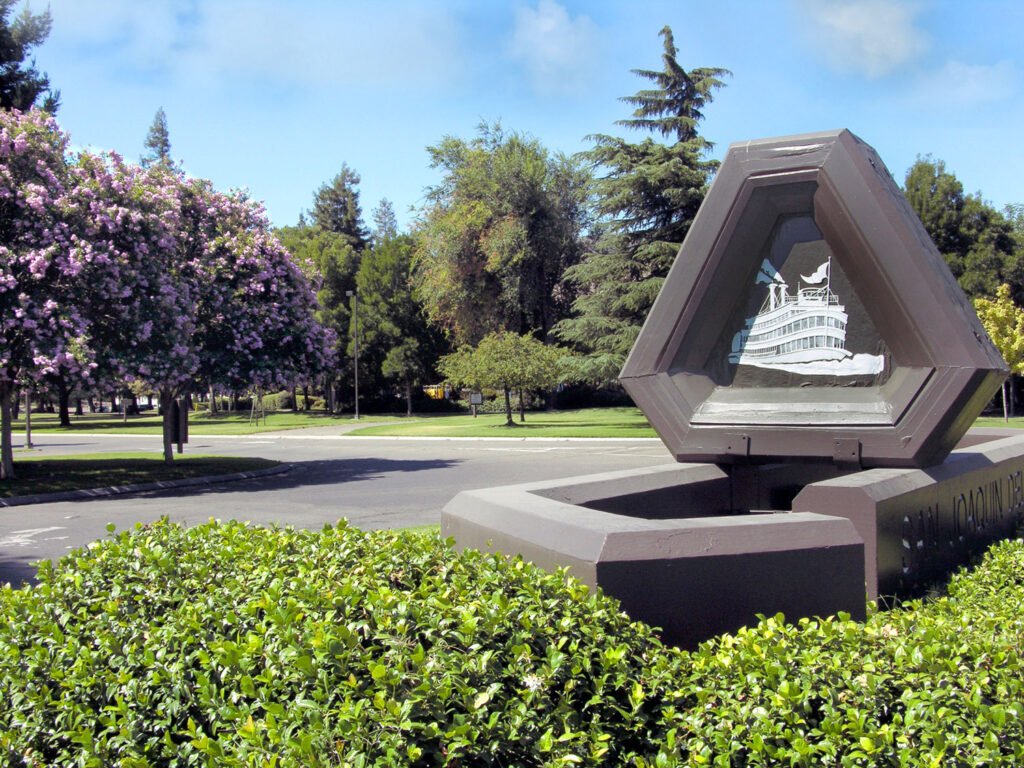
Delta College is another prominent community college known for its high-quality programs. The institution was founded in 1961 and now offers certificate, associate’s, and transfer programs to students at different stages of their careers.
It enrolls over 9,000 students per year and offers over 150 academic programs.
Along with its curricula, the university provides sophisticated, cutting-edge facilities for students to utilize.
Possible fields of study include:
- Automotive,
- HVAC,
- Construction management,
- Mechatronics,
- Welding
6. Gogebic Community College:
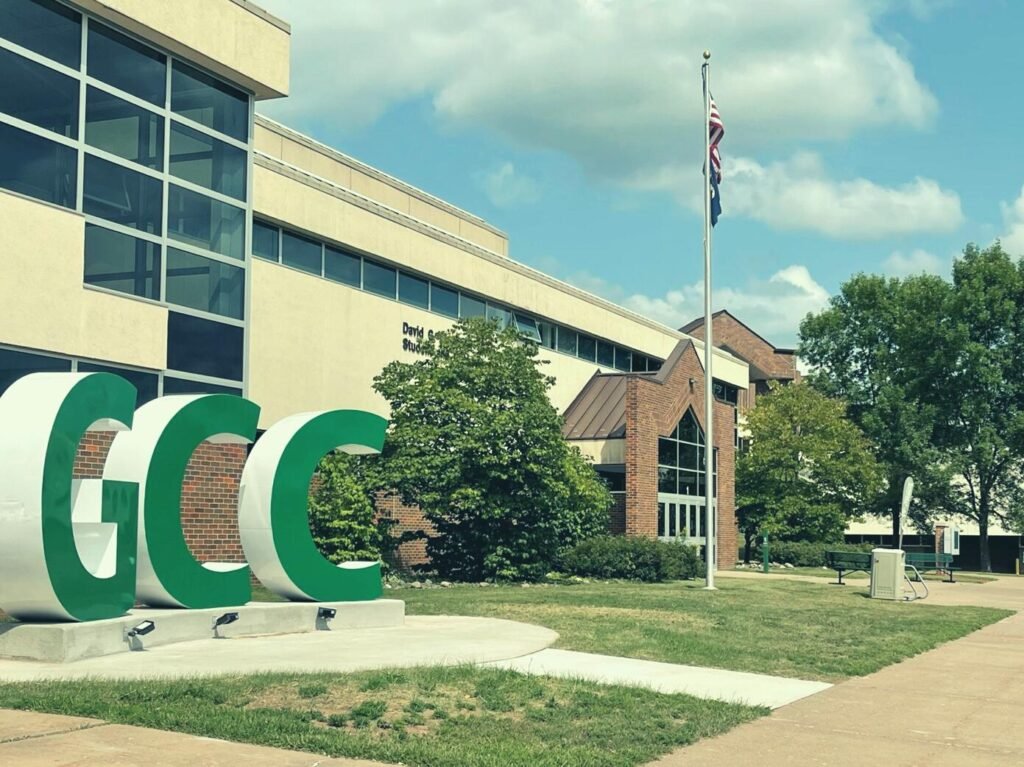
Gogebic Community College provides over 40 academic programs, including associate, transfer, and certificate programs. The college offers many learning formats, including in-person, online, and hybrid.
At college, students are exposed to a variety of programs that can help them grow in their careers. Once registered, students have access to a vast number of vocational programs, including:
- Construction Technology,
- Commercial Driver’s Licence,
- Cosmetology,
- Medical Coding and Billing,
- Welding
7. Bay College:
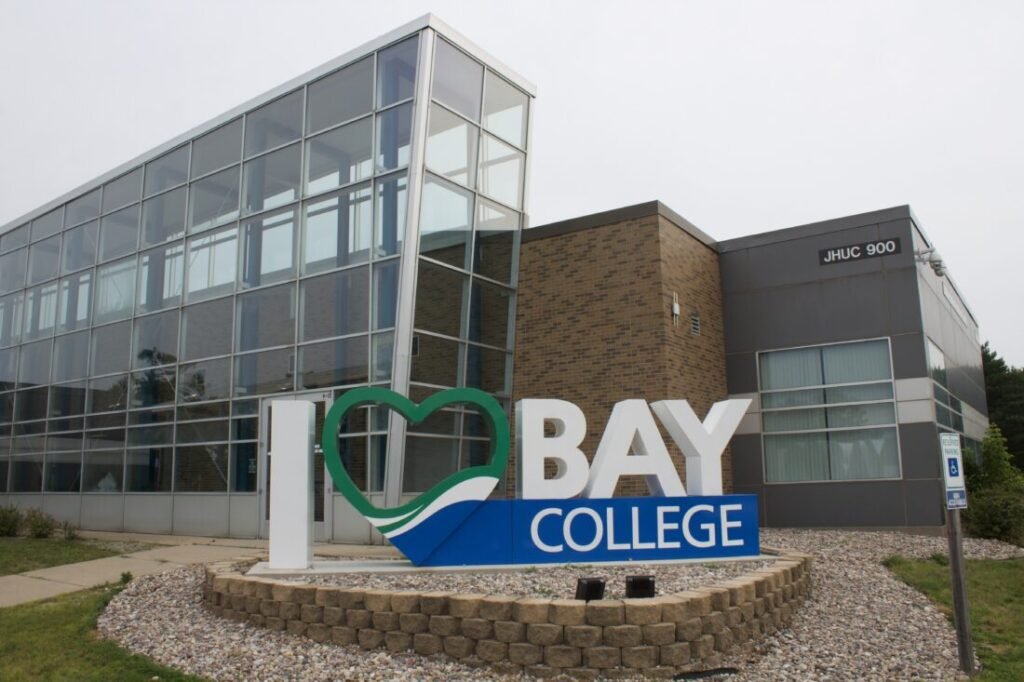
Bay College is another possible choice for those looking to learn a skill. The institution is a public community college in Escanaba, Michigan. The college has over 13,000 graduates globally and offers students numerous possibilities to further their education.
Overall, the college offers smaller class sizes, lower tuition, and more flexible class times.
Possible fields of study include:
- Automotive technician
- Medical aid
- Construction Management
- Fire Science
- Surgical technology
8. Irene’s Myomassology Institute:
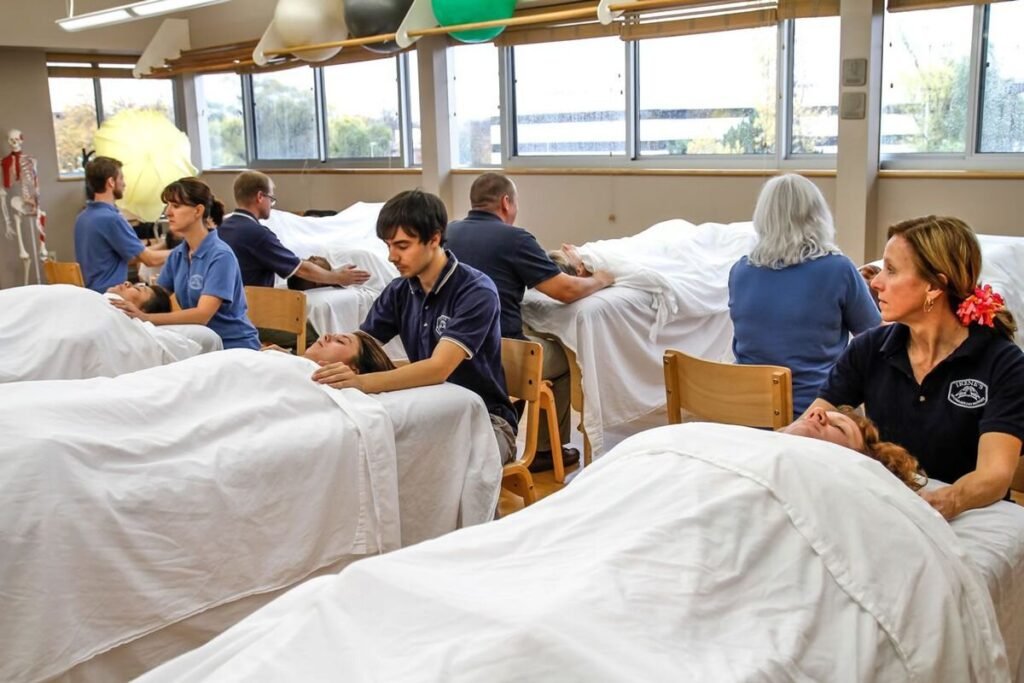
Irene’s Myomassology Institute is a famous institution that trains students for jobs in massage therapy. The organization was founded as a family business and is run by industry experts with over 50 years of experience. The facility also offers a scholarship of up to $2,000 to selected students.
Once admitted, students can expect:
- Flexible scheduling
- A supportive college community.
- Comprehensive understanding of healthy living.
- Alumni receive lifetime career placement help.
9. Lansing Community College:
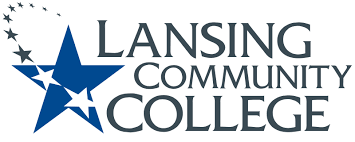
Lansing Community College is a public community college in Lansing, Michigan. The college was created in 1957 and spans 42 acres. Every year, about 14,500 students enroll in the institution’s more than 200 associate degree and certificate programs.
Along with its associate degree programs, the institution provides excellent vocational programs for students to participate in.
Some of the programs offered are:
- Dental Hygiene
- Construction Management
- Emergency Medical Services
- Fire science
- HVAC
- Massage Therapy
10. The Michigan Barber School:

The Michigan Barber School primarily prepares students for professions as barbers or stylists. Throughout the curriculum, students learn the competencies, skills, and level of education required for employment.
The school is designed to allow students to finish the curriculum while also practicing and doing real-world activities. This ensures that students obtain a complete range of abilities.
Students can choose from two different academic programs:
- Barber and styling program
- Barber Instructor Program
FAQ’s
What can you learn in vocational schools in Michigan?
Michigan’s vocational schools provide hundreds of career training choices, many of which are related to in-demand jobs around the state. Vocational schools provide instruction in fields including allied health, technology, and cosmetology.
What are the different kinds of vocational schools in Michigan?
Michigan’s community college system comprises multiple schools that offer a wide range of technical and vocational programs in fields such as allied health, technology, and skilled trades.
What is the difference between a vocational school and a college?
Vocational schools offer career-focused instruction, emphasizing the abilities required for a certain vocation. Colleges prioritize academic instruction, which includes courses in a wide range of fields.
Conclusion
The best vocational schools in Michigan include extensive classroom training, hands-on training, and some type of job placement aid, either through the school’s reputation or connections with industry partners.
And Michigan is home to numerous outstanding vocational schools that provide these perks and more.

